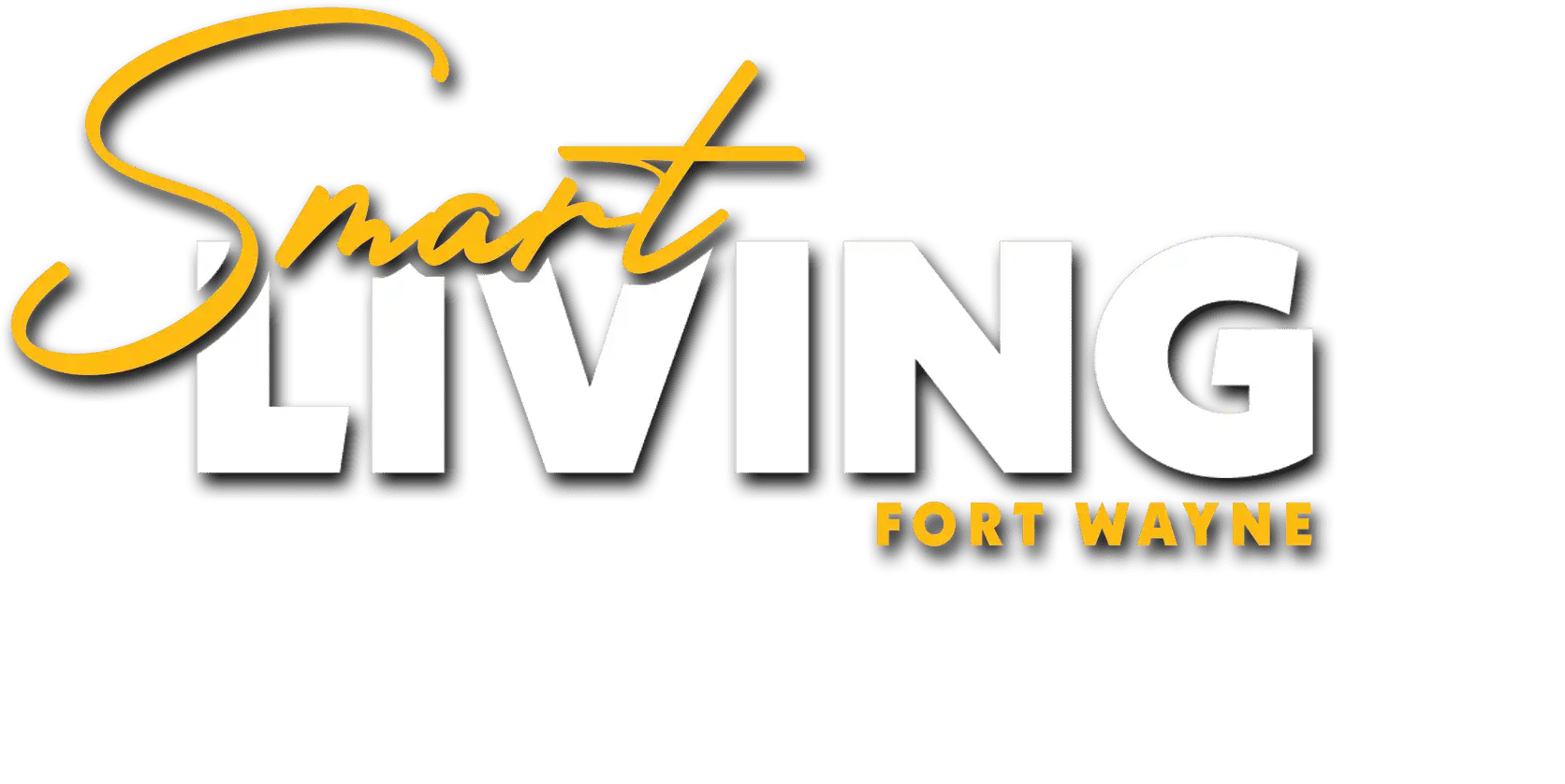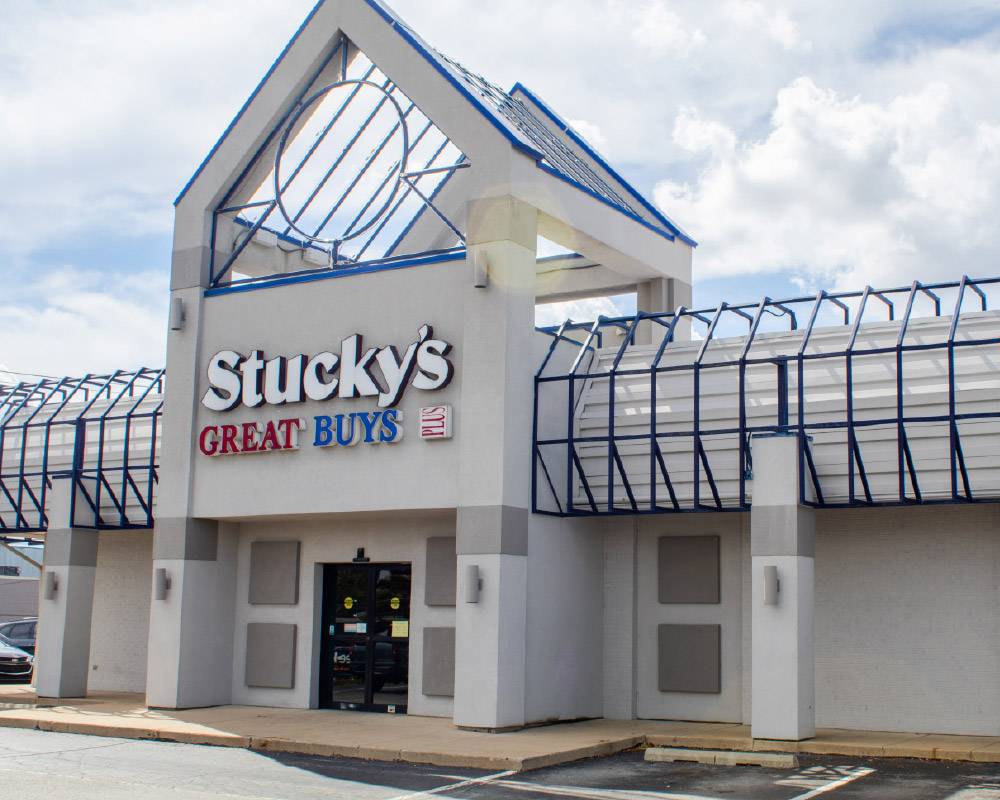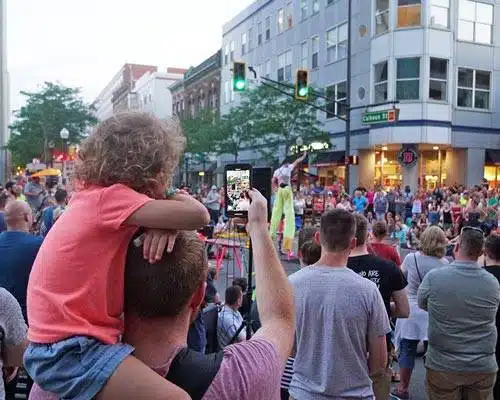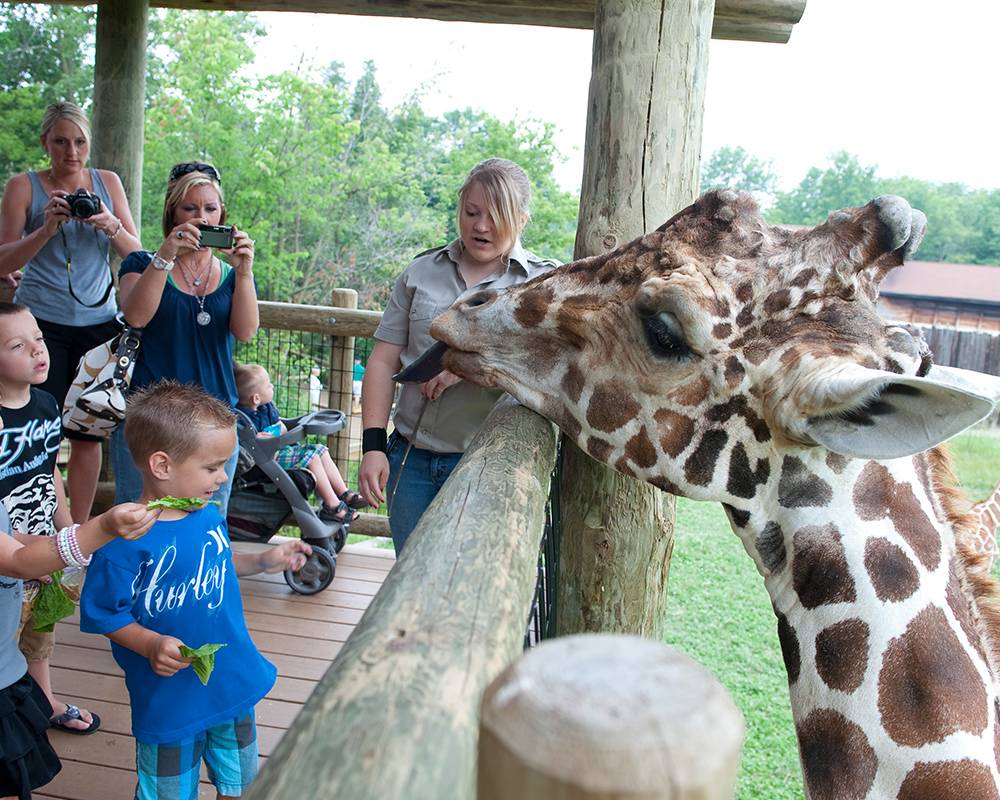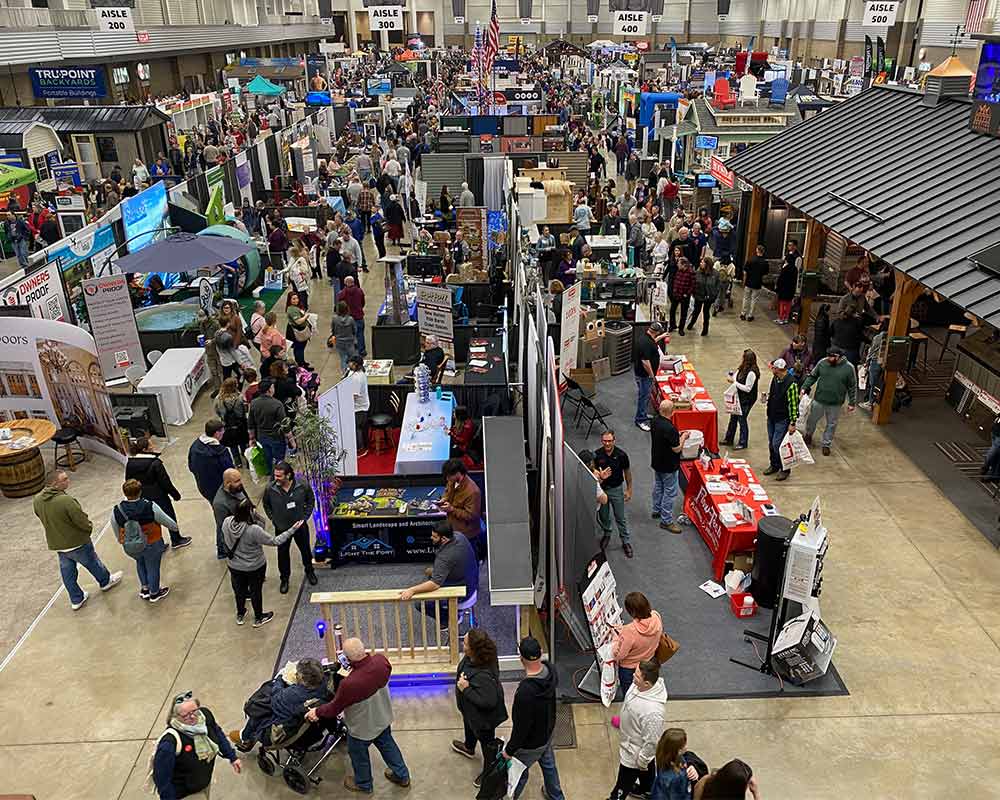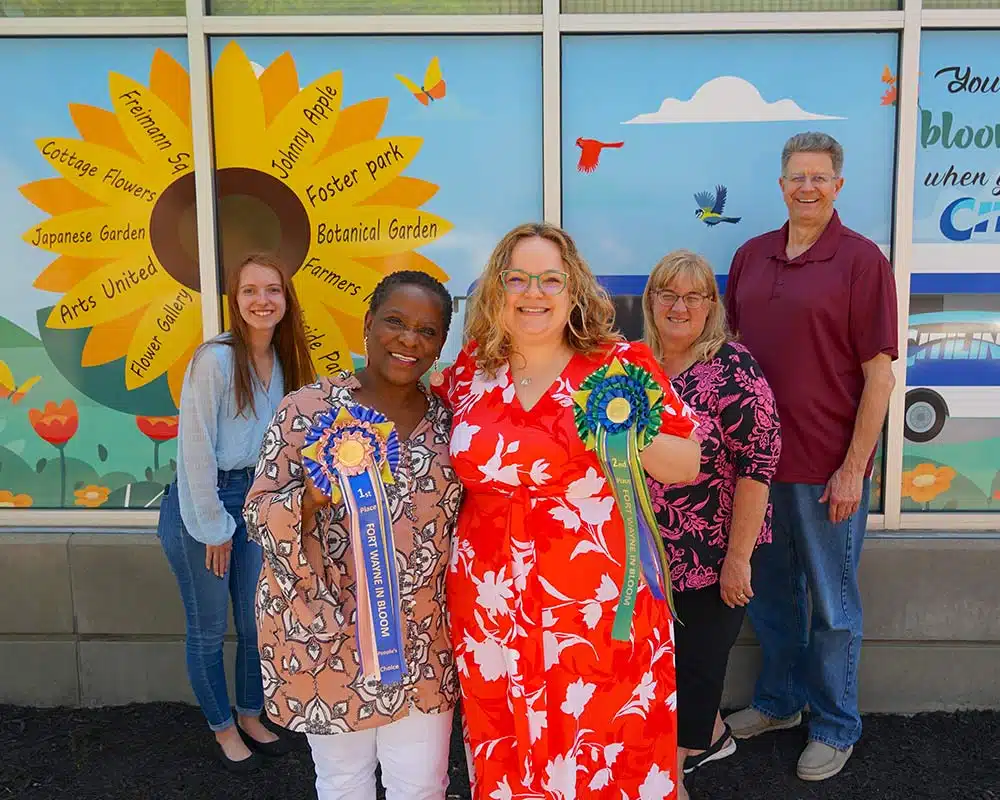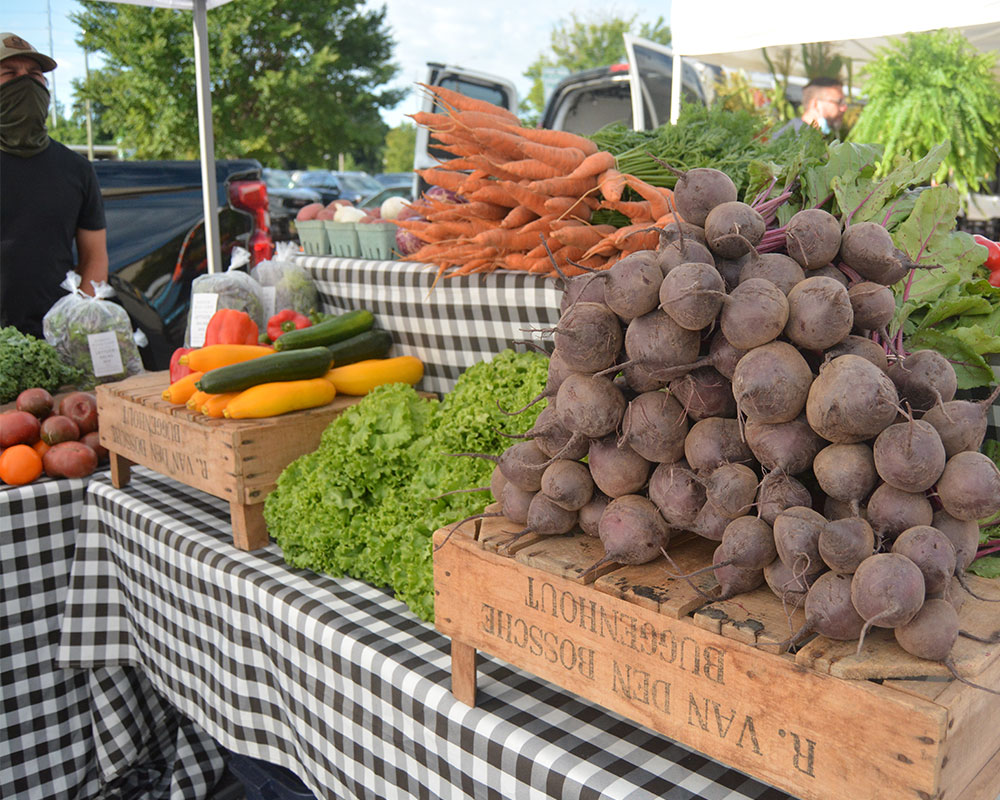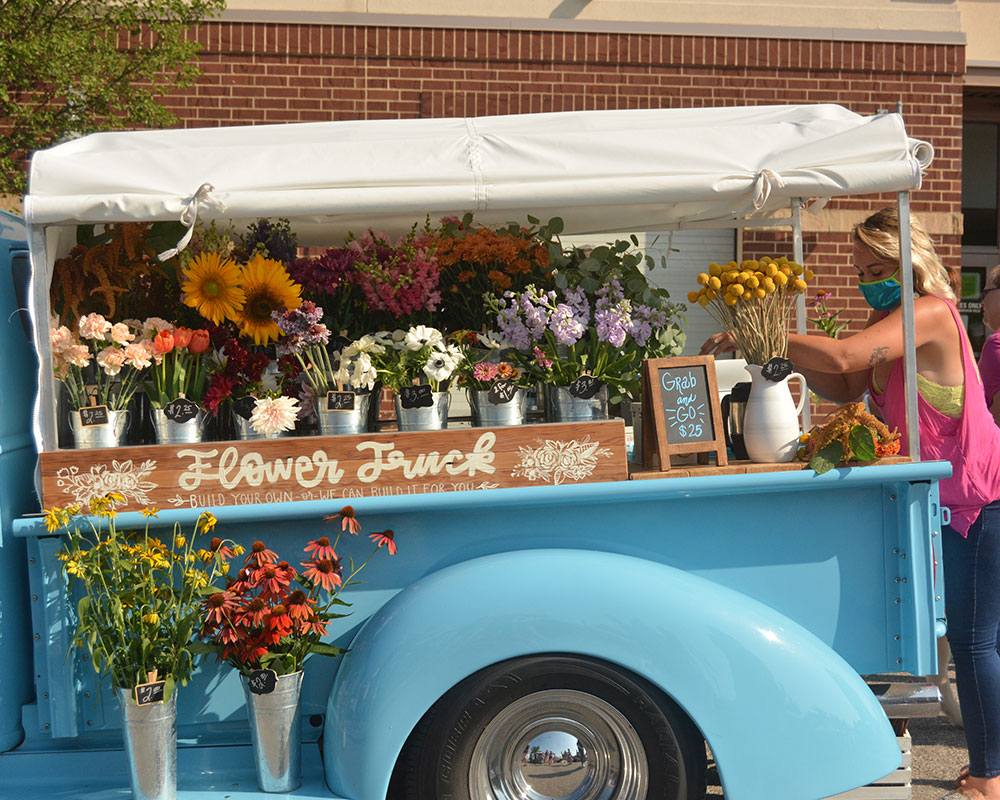
Leigh Rowan is a towering figure in the world of local farmers markets, and not just because she’s 6 feet tall. Before she opened Ft Wayne Farmers Market in October 2012, she was a vendor selling fresh bread.
“It’s so funny because starting a farmers market was never on my radar as a life’s goal, but here we are,” she says with a chuckle. “I just wanted to sell my bread year-round, but the farmers market has grown into a larger business than my Big Brick House Bakery & Pasta.”
Now the market is on the verge of settling into a new home at Electric Works, the mixed-use redevelopment of the former GE campus on Swinney Avenue. Stay tuned for upcoming announcements about that, says Rowan.
Rowan’s bread and pasta were a big hit at local markets when she relocated to Fort Wayne in 2011 from Wabash, Ind., with husband Kevin and children Luke and Bridjet.
“But the markets all closed in September. I heard shoppers saying they wished they could keep getting their local meat, eggs, cheese etc. year-round,” she says. “I also heard from vendors who wanted to sell their root vegetables into winter. I thought, ‘Why not? Let’s do this!’”
She headed to the downtown Fort Wayne Fire Station to seek advice.
“Who knows more about the large, empty buildings in downtown, and their floor plans, than firefighters?” Rowan reasoned.
She used her vendor’s eye to narrow a list of 15 spaces they suggested. There needed to be adequate parking, light, heat and restrooms for shoppers, but also room for multiple vendor trucks to unload simultaneously “so they don’t have to arrive at 5 a.m. and wait in line to unload.” Elevators large enough to accommodate loaded-up dollies were a must, too.
A light-filled indoor space at Parkview Field, 1301 Ewing St., checked the boxes, so she struck a deal and opened monthly, then twice monthly. Today the market is open every Saturday morning from 9 a.m. to 1 p.m.
“It went gangbusters immediately, even before local farmers had time to figure out how to grow fresh produce in their greenhouses,” she says. “The farmers sold all their root crops and by May it was slim pickings. I thought, ‘OK, now we have one winter under our belt.’”
Rowan believes savvy shoppers appreciate the high standards she set. She’s all about minimally processed and natural products grown or prepared within a 100-mile radius. Non-food items – pottery, jewelry, hand-sewn items – are kept to 5 percent or less of her vendor mix. She actively solicits new vendors when a category opens up, to keep a good balance.
“Vendors come and go for various reasons – they launch into storefronts or wholesale work, for example – so it’s a work in progress to keep a good balance.”
About 12 vendors have stuck with Rowan’s market every year since it opened. In normal years (no pandemic) the market hosts 50 vendors during winter and 70-plus during summer.
“All of our vendors must be insured and registered for tax purposes. And all who sell prepared food or serve food samples must have ServSafe certification because if you’re handling food, I just think you should have some basic safety knowledge,” she says. She arranged for her vendors to get a discount when enrolling in the 3-hour ServSafe video class.
“We’re also the only local market doing farm visits to see if what’s being sold is actually locally grown. We can’t police every item but we do our best to enforce our requirements because it increases the traceability of the food we put on our tables.”
The pandemic never forced Ft Wayne Farmers Market to close – but staying open was a challenge.
“First I had to convince the powers that be that we’re an essential business, not just a cute weekend activity,” she says. “I explained that the local food system is more important than ever at a time when the national supply chain is disrupted. When grocery store shelves were empty, the farmers market opened up, fully stocked, each Saturday.
“Since vendors had to be spaced apart, I had room for fewer of them and had to restrict participation to my core year-round group. That was hard. It really hurt to tell the others they couldn’t be part of it,” she says. “The smaller number of core vendors meant each one paid more to cover costs. They took it on the chin and had to raise their prices. But our serious shoppers stuck with us.”
Year by year, Rowan has added part-time staff members to her privately owned market and now employs eight. She breaks the mold by paying them a living wage and is proud that her market does two good things: It offers high-quality food to area residents and it gives small businesses a chance to develop their customer bases. Her active support for small entrepreneurs was recognized by Greater Fort Wayne when she was named a Top Five Small Business.
“You don’t have to own a John Deere tractor to be part of our market if you just want to grow enough food to earn extra money for your family,” she says. “But if you have aspirations to build a larger business, we’ll help you do that. If a vendor can’t afford $30 a month to maintain a website, for example, we’ll at least make sure they have a landing page on ours.”
Educating consumers about food quality is an ongoing passion for Rowan. She recently produced and posted to her website a slideshow about the difference between locally raised beef and imported beef processed in the U.S. and sold at big-box stores under a U.S. label.
A desire to provide better food to her voracious family – “We’re all over 6 feet tall and very active, so we didn’t want waif food” – drew Rowan into the food world when her children were young. She began grinding her own grain and baking her own bread after purchasing a $100 stone mill from eBay in 2004. Her sister “double-dog dared” her to produce “a whole-grain pasta that didn’t taste like gritty cardboard.” She met the challenge, combining sweet white wheat with fresh mushrooms or vegetables for a pasta with protein for staying power and complex carbohydrates for brain power. Learn more at FtWaynesFarmersMarket.com. ❚
YLNI’s New Indoor Market a Big Hit
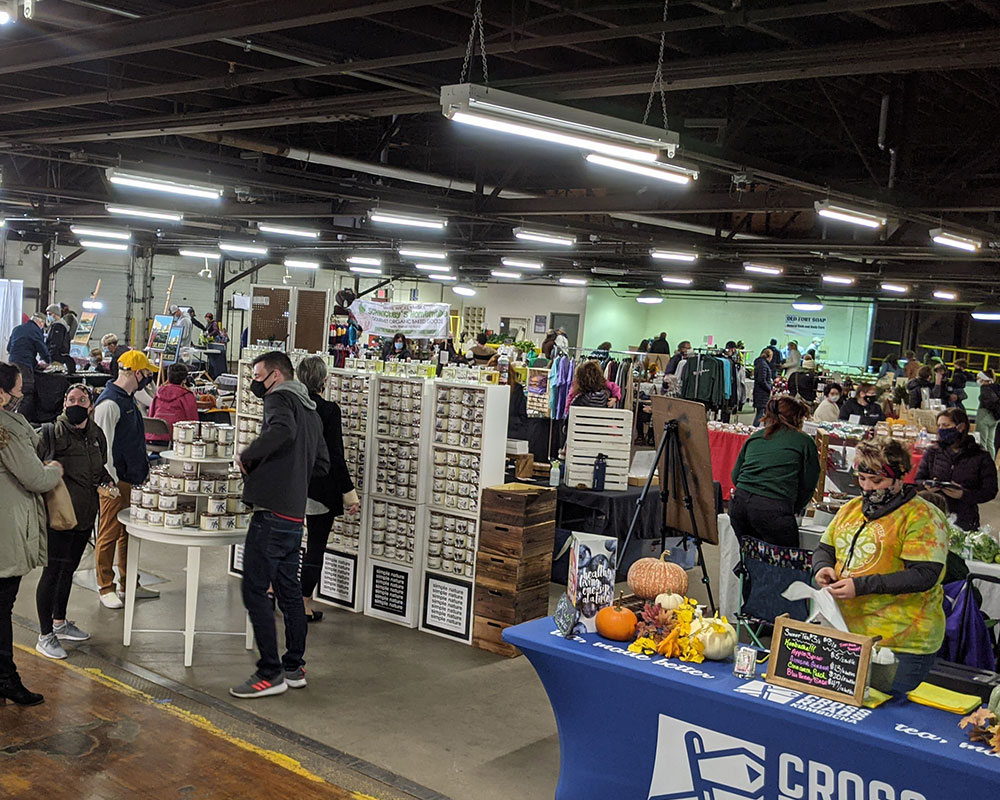
The region’s second indoor farmers market opened in downtown Fort Wayne last fall, owned by nonprofit Young Leaders of Northeast Indiana (YLNI), which has managed a bustling outdoor summer market for 17 years. The new indoor market runs October to April on Saturdays from 9 a.m. to 1 p.m. inside the former Aunt Millie’s Perfection Bakery building at 350 Pearl St.
The summer location of the YLNI Farmers Market is the northeast corner of Wayne and Barr streets, directly behind the Fort Wayne History Center. This market is open 9 a.m. to 1 p.m. on Saturdays. Its 75-plus summer vendors attract 10,000 shoppers on a typical Saturday, says Brandon Noll, vice president for community impact at YLNI.
“A lot of people don’t even know there are two different markets,” says Noll. “For shoppers it just means more opportunity to buy locally produced food and goods in downtown Fort Wayne.”
“We’re extremely fortunate to operate a winter market at the historic Aunt Millie’s,” says Ashley Adams Wagner, YLNI market manager. “The winter market has created so much momentum, and we’ll be carrying that into the summer market.”
YLNI expanded its market to year-round status at the request of vendors, says Noll. Some found themselves without a place to sell after Ft Wayne Farmers Market was forced to reduce its number of indoor vendors to comply with COVID-19 spacing requirements.
Shoppers are turning out in high enough numbers to make the new winter market a success.
YLNI is a network of 1,000-plus young professionals bound by a common goal to attract, develop and retain emerging leaders through community, professional and social engagement. It was founded in 2004 to help reverse the “brain drain” of young professionals moving away from Indiana.
“The farmers market aligns with our mission to attract and keep young people rooted in Fort Wayne by adding to the quality of life here,” says Noll. “It’s a very sociable event where people meet for coffee, beer or a mimosa while perusing crafts and other locally made items.”
The YLNI market also helps entrepreneurs to get on their feet. Vendors must hand-make or produce everything they sell. YLNI’s market is run by one paid manager and a host of volunteers. Learn more at ylni.org. ❚
